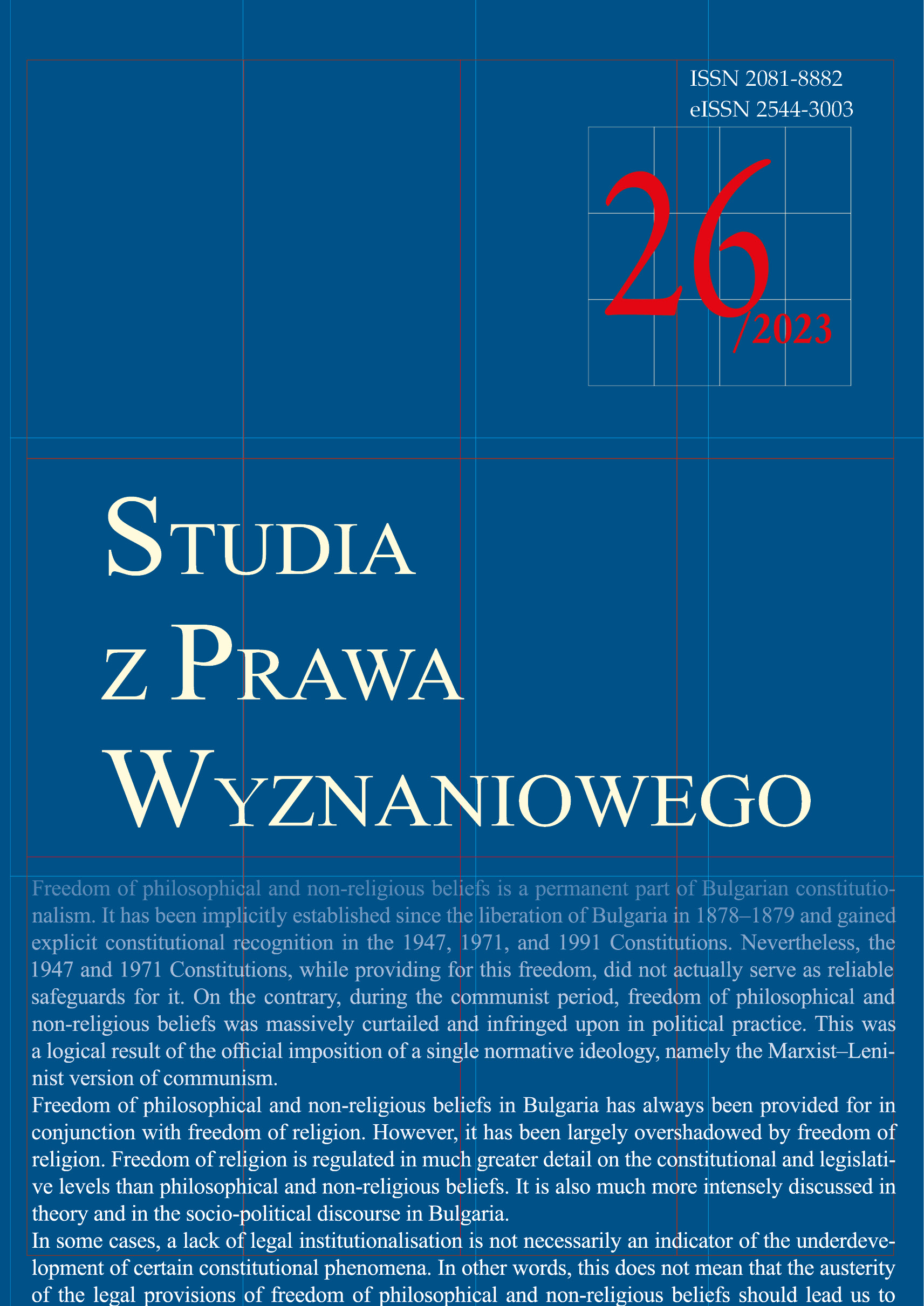„Przypadki klerykalizmu” wśród słuchaczy Szkoły Prawniczej w Szczecinie (1950–1951) oraz ich dyscyplinarne następstwa
“Cases of clericalism” among students of Szczecin Law School (1950–1951) and their disciplinary consequences
Author(s): Paweł KaźmierskiSubject(s): History of Law, Public Administration, Public Law, Recent History (1900 till today), Post-War period (1950 - 1989)
Published by: Katolicki Uniwersytet Lubelski Jana Pawła II
Keywords: freedom of conscience and religion; People’s Poland; Szczecin Law School; training of judges;wolność sumienia i wyznania; Polska Ludowa; Szkoła Prawnicza w Szczecinie; kształcenie sędziów
Summary/Abstract: In 1946, the authorities of the so-called People’s Poland decided to allow graduates of secondary law schools, specifically those established by the Minister of Justice, to administer justice. Graduates of these schools did not hold a university law degree, nor had they completed judicial training. Before beginning their education in such schools, most students had completed only seven years of primary school. Szczecin Law School operated from 1950 to 1951. The education offered there was strongly ideologized in the spirit of Marxism-Leninism. Students who demonstrated or declared religious faith were met with strong reactions from school management, including disciplinary consequences in the form of expulsion from the school. As such, the present paper aims to discuss “cases of clericalism” among students of Szczecin Law School by analyzing the school’s archival records held in the State Archives in Szczecin. It is important to note that, in a short period of time, graduates of this school often took high office within the local judiciary. They also constituted the majority of members of the “Group of Agitators”, a section of the Polish United Workers’ Party at the Voivodeship Court in Szczecin.
Journal: Studia z Prawa Wyznaniowego
- Issue Year: 2023
- Issue No: 26
- Page Range: 323-336
- Page Count: 14
- Language: Polish

